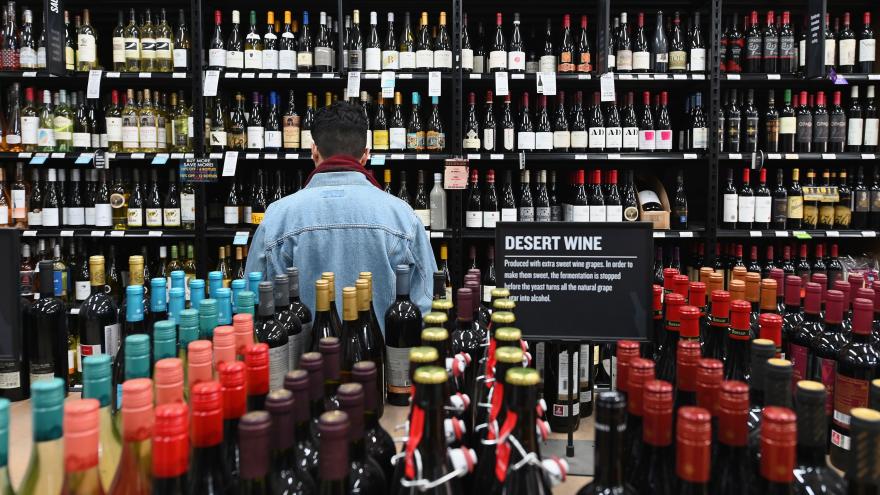WHO would like to remind everyone that drinking alcohol will not protect you from coronavirus

By Jacqueline Howard and Scottie Andrew, CNN
(CNN) -- In case it bears repeating, the World Health Organization wants you to know that excessive alcohol consumption will not protect you against Covid-19. It won't kill the virus, either -- the opposite is true.
Excessive alcohol use can weaken the immune system, so in an attempt to curb drinking during the pandemic, WHO officials are urging governments around the world to enforce measures that limit alcohol consumption and crack down on coronavirus misinformation.
"At times of lockdown during the COVID-19 pandemic, alcohol consumption can exacerbate health vulnerability, risk-taking behaviours, mental health issues and violence," WHO/Europe said in a factsheet published on Tuesday.
"WHO/Europe reminds people that drinking alcohol does not protect them from COVID-19, and encourages governments to enforce measures which limit alcohol consumption," it said.
The organization published the statement the same day President Donald Trump announced he'd cut WHO funding.
And its first recommendation to combat the health risks of drinking? Well, not drinking at all.
But many people could view that advice as extreme, since it comes at a time when much of the world is at home, Americans are stockpiling alcohol and Zoom happy hours have replaced bar get-togethers. All of those are reasons why, WHO says, now is a particularly bad time to drink in excess.
Alcohol-related deaths number 3 million every year
Excessive alcohol use is already an issue, pandemic or not, said Carina Ferreira-Borges, programme manager for WHO's Europe Alcohol and Illicit Drugs Programme. Every year, there are at least 3 million alcohol-related deaths worldwide, according to WHO.
During the pandemic, "we should really ask ourselves what risks we are taking in leaving people under lockdown in their homes with a substance that is harmful both in terms of their health and the effects of their behaviour on others, including violence," Ferreira-Borges said in WHO's statement on Tuesday.
Existing rules to limit alcohol use should be "upheld and even reinforced" during the pandemic, WHO said, and relaxing regulations isn't a good idea, either.
Alcohol won't kill coronavirus
WHO went on to disprove some conspiracies about alcohol and Covid-19 -- notably, that drinking it can kill the coronavirus or make people immune to it.
Neither theory is true, WHO said: Heavy drinking can compromise the immune system and weaken its ability to defend against viruses, so if people do become infected with coronavirus, alcohol consumption may worsen the risk to their health.
WHO said the theory that drinking high-strength ethyl alcohol or ethanol can kill the virus is false, too. While products made with 60% or more alcohol can effectively disinfect the skin, the same process won't work inside your body.
So for our safety, WHO recommends that we abstain from alcohol.
"Avoid alcohol altogether so that you do not undermine your own immune system and health and do not risk the health of others," WHO said in its fact sheet. "If you drink, keep your drinking to a minimum and avoid getting intoxicated."
Liquor stores are essential businesses in most of the US
In most states in the US, liquor stores and retailers that sell alcohol are considered essential businesses. That designation has attracted some criticism, but certain health experts maintain that keeping them open could prevent alcohol-dependent people from experiencing withdrawal symptoms.
There aren't published findings that show how the pandemic has impacted rates of alcohol consumption or alcohol use disorder across the population. But if sales data are any indication, people appear to be buying more alcohol -- sales of alcoholic beverages shot up 55% in the third week of March (the week before most states issued stay-at-home orders) compared to the same time last year, according to Nielsen.
The-CNN-Wire
™ & © 2020 Cable News Network, Inc., a WarnerMedia Company. All rights reserved.
